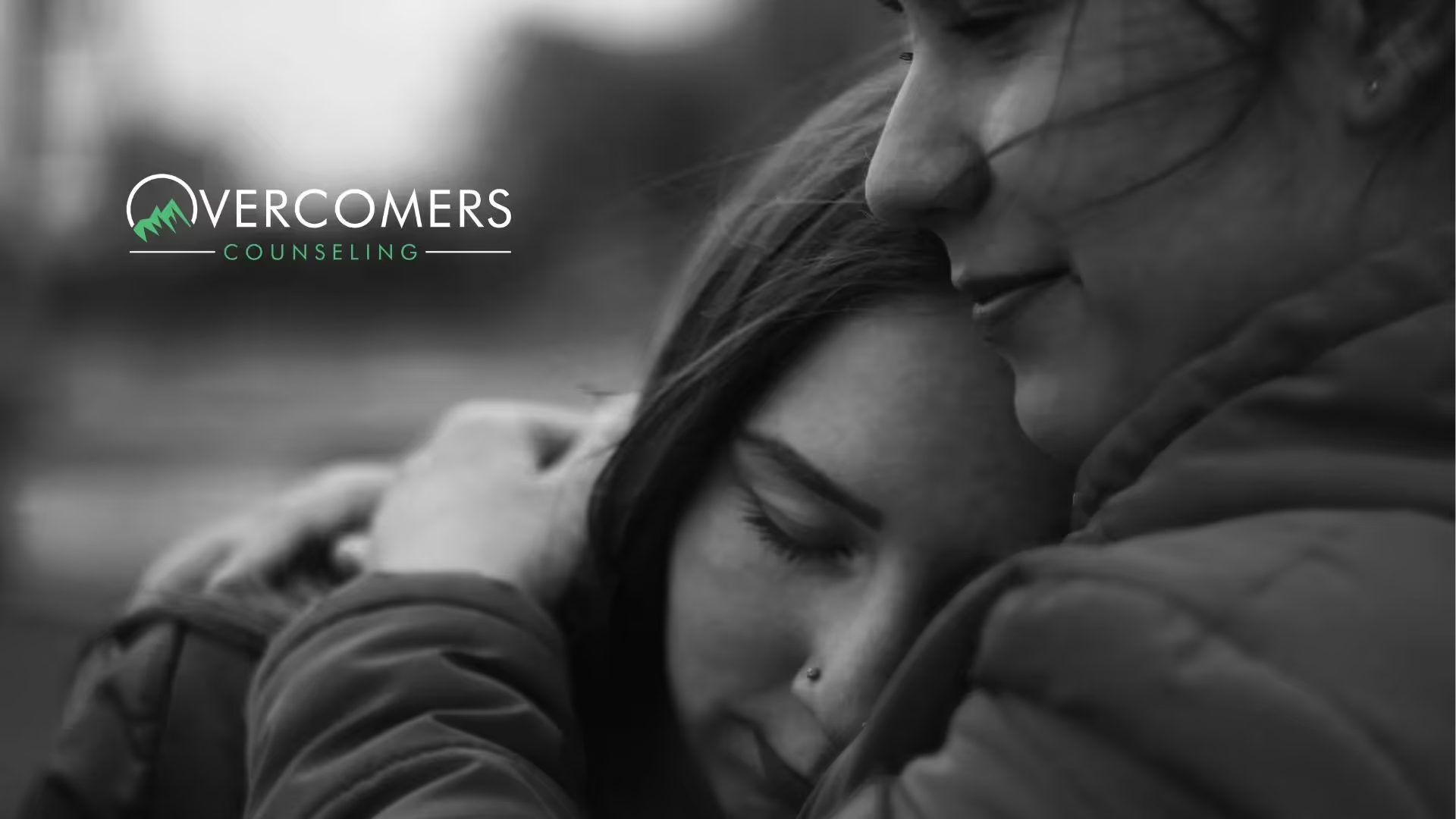Grief, a sophisticated interplay of emotions and responses prompted by loss, is an inescapable component of our shared human existence.However,...

Grief, a sophisticated interplay of emotions and responses prompted by loss, is an inescapable component of our shared human existence.
However, understanding when and how to navigate these complex feelings can be challenging.
This is where grief counseling comes into play. It's a form of therapy designed to help individuals cope with loss, whether it's the death of a loved one, the end of a relationship, or any other significant life change.
But how do you know if you need grief counseling?
It's not always easy to recognize when grief has moved beyond a natural emotional response and starts to impact your daily life adversely.
Acknowledging grief and its effects on your mental, emotional, and physical well-being is the first step towards healing.
The importance of this acknowledgment cannot be overstated, as it opens the door to seeking professional help when necessary, ultimately leading to healthier coping strategies and a more resilient approach to life's challenges.
Grief is a natural response to loss, but sometimes it can become overwhelming and impact your daily life. Here are some signs that you might need grief counseling:
Persistent Feelings of Sadness and Despair
Grieving naturally involves feelings of sadness. However, if these emotions persist for an extended period and seem to intensify over time, it could be a sign that professional help is needed. This is especially true if you're experiencing feelings of hopelessness or despair.
Difficulty Carrying Out Daily Activities
If grief is hindering your ability to perform regular tasks like eating, sleeping, or going to work, it may be time to seek help. Difficulty concentrating or making decisions can also be indicators.
Inability to Move on From the Loss
It's normal to miss someone you've lost and to think about them often. But if you find that you're unable to accept the loss or move forward in any way, this could be a sign that you're stuck in your grief and could benefit from counseling.
Increased Isolation and Withdrawal
While some alone time can be helpful in processing your grief, withdrawing from loved ones or activities you once enjoyed can be a sign of complicated grief. If you're avoiding social interaction because it's too painful or you feel others won't understand, a grief counselor can provide support and understanding.
Physical Symptoms Related to Stress and Anxiety
Grief can manifest physically as well as emotionally. If you're experiencing symptoms like headaches, stomachaches, fatigue, or other unexplained physical ailments, it could be a result of your grief.
Unhealthy Coping Mechanisms (Substance Abuse, Self-Harm etc.)
Turning to alcohol, drugs, or self-harm to cope with your grief is a clear sign that you need professional help. These coping mechanisms can be dangerous and only serve to mask your pain rather than help you deal with it.
Grief counseling can be a beneficial resource for those navigating the complexities of loss. Here are some key benefits:
Understanding and Navigating Your Feelings
One of the primary benefits of grief counseling is that it provides a safe space for you to express and understand your feelings. A grief counselor can guide you through your emotions, helping you to understand why you're feeling this way and how to navigate these feelings in a healthy manner.
Learning Healthy Coping Strategies
Grief can be overwhelming and at times, it might feel unmanageable. A grief counselor can equip you with various coping strategies to deal with your grief. These could include relaxation techniques, mindfulness exercises, journaling, or other therapeutic activities.
Rebuilding and Finding Purpose in Life
After a significant loss, it's common to feel as though your life has lost its purpose. A grief counselor can help you rebuild your life after your loss, assisting you in finding new purpose and meaning. This could involve setting new goals, exploring new interests, or making lifestyle changes.
Prevention of Mental Health Disorders
Unresolved grief can sometimes lead to mental health disorders such as depression or anxiety. By addressing your grief and learning to cope with it in a healthy way, you can reduce the risk of developing these conditions.
The process of grieving is different for everyone, and it's okay to seek help when you need it. Grief counseling can provide the support and tools necessary to help you move forward.

The journey to finding the right grief counselor begins with researching qualified professionals.
There are numerous resources available, such as SAMHSA's National Helpline, the Grief Counselor Directory, and Psychology Today's directory of therapists.
Overcomers Counseling is another resource worth considering, as they offer a range of services for those dealing with loss and grief.
Next, it's important to check the credentials and specializations of potential counselors. Look for professionals trained in areas relevant to your needs, such as trauma-informed care or cognitive behavioral therapy (CBT).
This ensures that the counselor has the expertise to help you navigate your grief effectively.
Cost and insurance coverage are crucial considerations when seeking grief counseling.
Some counselors operate on a sliding scale fee system based on income, while others may accept insurance.
There are also places that offer free grief counseling, so it's worth exploring these options if cost is a concern.
Finally, once you've found a counselor who seems like a good fit, make the first appointment.
It's okay to meet with several therapists before deciding on the one you feel most comfortable with.
The goal is to find a counselor who can support you through your grief journey, so take your time to find the right fit.
Grief counseling offers numerous benefits for individuals navigating the complexities of loss, from understanding and managing feelings to learning healthy coping strategies and preventing mental health disorders.
Finding the right grief counselor involves researching qualified professionals, checking their credentials and specializations, considering costs and insurance coverage, and making that first appointment.
Therapists at Overcomers Counseling can be a valuable starting point in this journey.
There's no correct timeline for grief, and it's perfectly okay to reach out when you're ready, support is always available.
Addressing grief is crucial because unresolved grief can significantly impact your quality of life, overall well-being, and ability to function in daily activities. Left unaddressed, grief can lead to more severe mental health issues, such as depression, anxiety, and complicated grief.
Ignoring grief can exacerbate symptoms and make it more challenging to manage over time. This can result in a negative impact on your personal, professional, and social life, leading to feelings of isolation, chronic sadness, and even physical health complications.
There are many ways you can honor your loved one's memory during the holidays. You could decorate in their favorite colors, play their favorite music, make their favorite food, or even just talk about them often throughout the holiday season. You could also create a new tradition in their memory, such as planting a tree or making a donation in their name.
Grief may feel worse at night because sleep disturbances are common during the grieving process. As nighttime falls, distractions diminish and we're left alone with our thoughts, which can make the loss feel overwhelming.
Some signs that you may be ready to move on include feeling at peace with the breakup, no longer regularly thinking about your ex, and having a renewed sense of optimism. Ultimately, only you can decide when you're ready to start dating again or take other steps toward moving on.
There are a few things you should avoid saying to someone who is grieving, as they can come across as insensitive or unhelpful. For example, don't tell them that it's "time to move on" or that they "should be over it by now." It's also best not to make any assumptions about how they're feeling or what they need – instead, ask them directly how you can help.